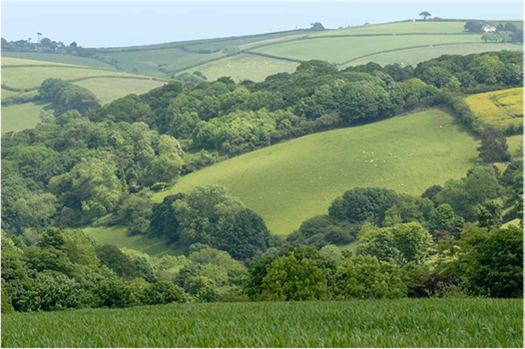
This morning The Financial Times speculated on how new agricultural policy could reduce support for farmers at the same time as new trade deals and tariffs might threaten the competiveness of UK agri-food products.
The journalist spoke to the National Farmers Union (NFU), which claims future policy which puts the environment at the centre of its approach to farm subsidies could make the UK less self-sufficient in food production and more reliant on imports.
We are working closely with a range of environmental and agricultural stakeholders to collaboratively design a new Environmental Land Management (ELM) scheme that will pay land managers for delivering ‘public goods’ – and we have been consistently clear we will make Brexit work for all our farmers and food producers.
The fact is, farming efficiently and producing the high quality food we eat does not have to come at the expense of improving the environment too. Our future policy will reward farmers for public goods such as enhancing the environment, while also investing in technology and skills to improve productivity.
And crucially, we have secured an agricultural transition period of seven years, which will give farmers stability, certainty and a smooth transition as we move towards this replacement system.
At the same time, we are boosting our no deal preparations and stand ready to intervene to provide support to some sectors in the unlikely event this is required.
A Defra spokesperson said:
Leaving the EU provides an opportunity to create a new agricultural policy tailored to the needs of farmers and food producers across England.
This will be built on the concept that farming efficiently and improving the environment should go hand in hand. It will reward a range of ‘public goods’ such as environmental improvements, but also investment in technology and skills to improve productivity and help farmers produce the high-quality food we’re renowned for.
1 comment
Comment by William Hughes-Games posted on
To ensure that we even have farming on into the future, we have to ensure that there is soil in which to farm. Do you realize that all around the UK are towns that used to be sea side towns that are now inland. Strange, you might say with the sea rising historically about a mm per year and now up to 5mm per year. The answer is the huge amount of soil washed off of the land, mainly due to bad farming practices. There is a template for reversing this trend in a book, "Growing A Revolution" by Montgomery but it does so much more including:::
*Improving the bottom line of farmers
*Increasing the infiltration of precipitation into the soil
*Reducing down stream floods
*Slashing nutrient flow into streams
*Reducing farm inputs (diesel, fertilizer, pesticide, herbicide etc.)
*Increasing resiliency to weather
*Increasing resiliency to input price fluctuations
*Increasing resiliency to price fluctuation for products.
*Making farms net negative carbon sources
and a bunch of others.